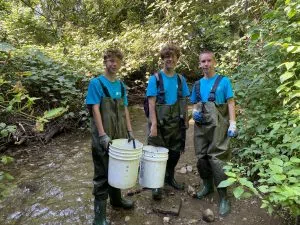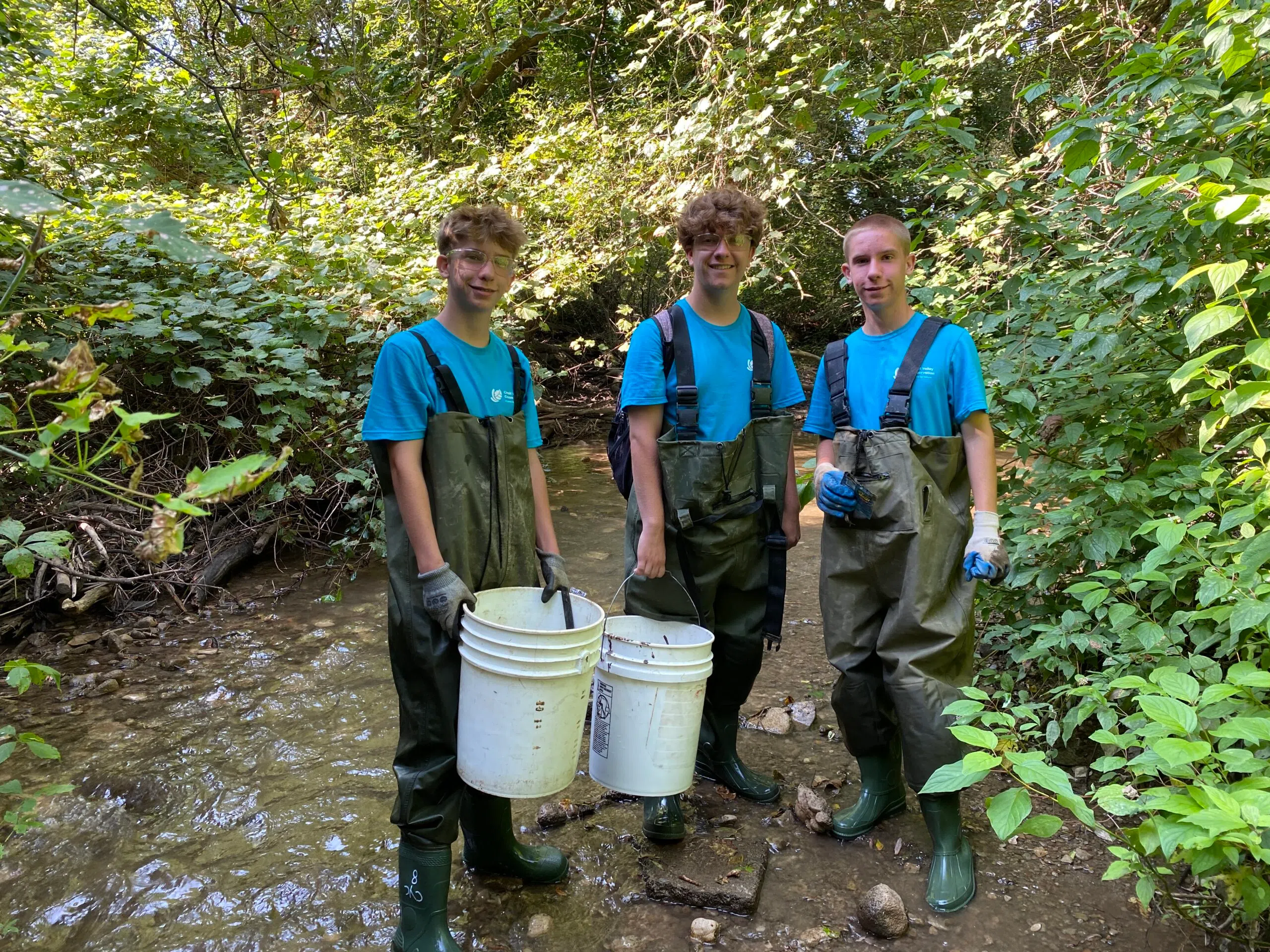Credit Valley Conservation Foundation (CVCF) has announced a new partnership with the Greenbelt Foundation to support Credit Valley Conservation’s (CVC) Community Outreach Youth Stewardship Programs today. The Greenbelt Foundation is committing $19,695 over the next one and a half years for stewardship and educational activities that will help restore and protect habitat near urban areas for freshwater species at risk within the Greenbelt.
The project will improve the biodiversity and protection of over 10 hectares of critical habitat in Silver Creek, Halton Hills, as youth volunteers engage in actions outlined in CVC’s Hungry Hollow Sustainable Neighbourhood Action Plan (SNAP). Through 20 events, CVC aims to engage and train 200 youth participants, educating them about local environmental issues in the Greenbelt and empowering them to protect nature.
Thanks to the financial support of the Greenbelt Foundation, youth will plant 100 native trees and shrubs along Silver Creek, care for 125 newly planted plants, and remove invasive species and debris jams to improve the stream’s health. CVC staff will also conduct on-site monitoring and protection of riparian habitat.
This work aligns with the Greenbelt Foundation’s focus on native tree, shrub and other vegetation plantings that increase natural cover in the Greenbelt, contribute to biodiversity, and create greater climate resilience for Ontario residents. The Greenbelt’s natural areas provide essential climate resilience for local communities in the Greater Golden Horseshoe—Canada’s most rapidly urbanizing region. Greenbelt natural features, like forests, wetlands and healthy soils, help to prevent flooding, protect freshwater and offset the urban heat-island effect, helping to keep the air feeling cool during heat waves.
About CVC’s Youth Stewardship Programs
Since 2007, CVC’s Conservation Youth Corps (CYC) and Frontline programs have empowered youth volunteers to work alongside CVC staff and community partners to restore and steward natural areas across the Credit River Watershed. These programs have engaged over 26,500 teens who have contributed over 150,000 volunteer hours. Together, they have planted over 93,000 native trees, shrubs and wildflowers, and removed invasive species from over 124,000 metres squared of land. The Frontline program also received the Lieutenant Governor’s Ontario Heritage Trust Award for Youth Achievement in 2016 and 2021.

Three youth volunteers took part in the Youth in Silver Creek Stewardship and Education project this past summer during CVC’s Conservation Youth Corps program.
















